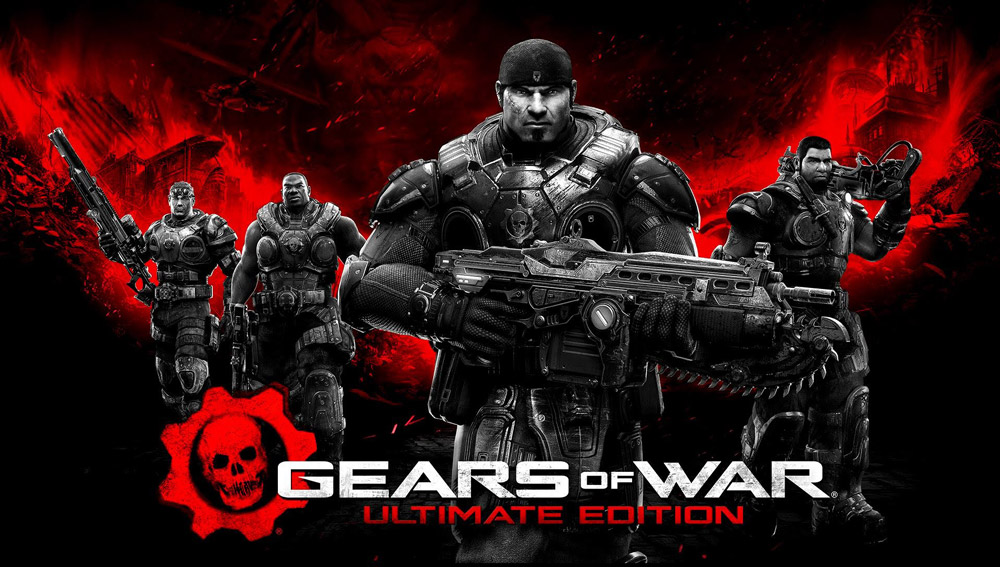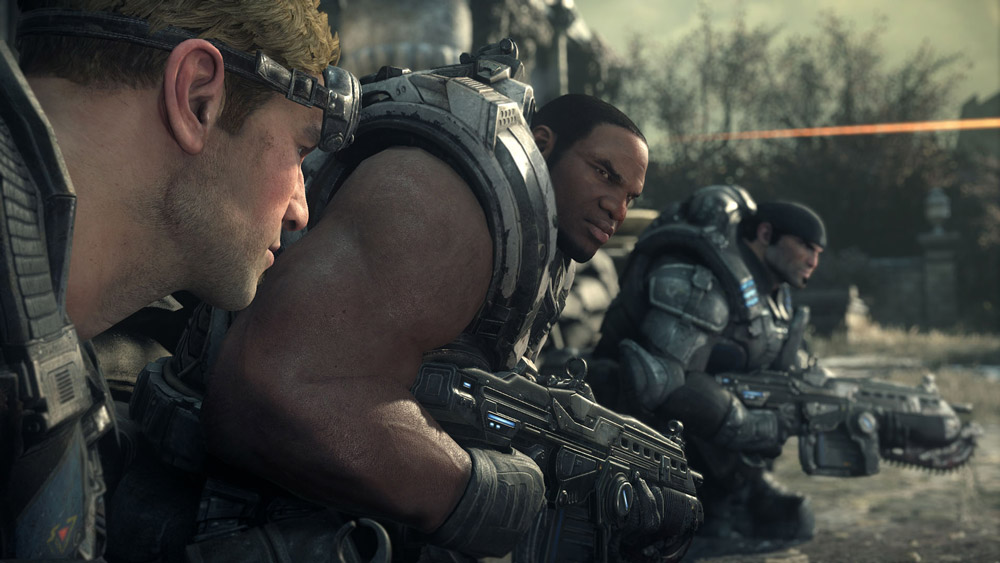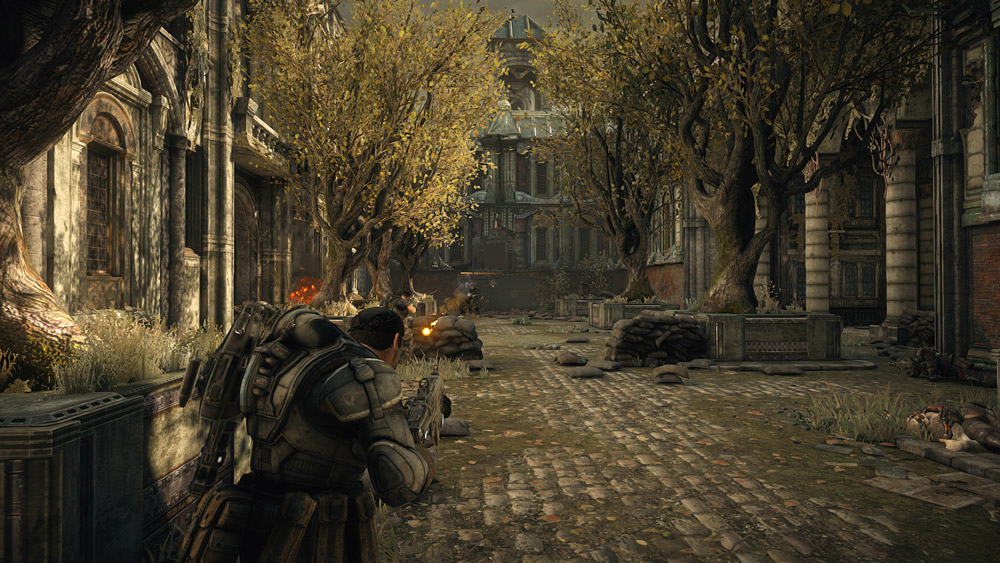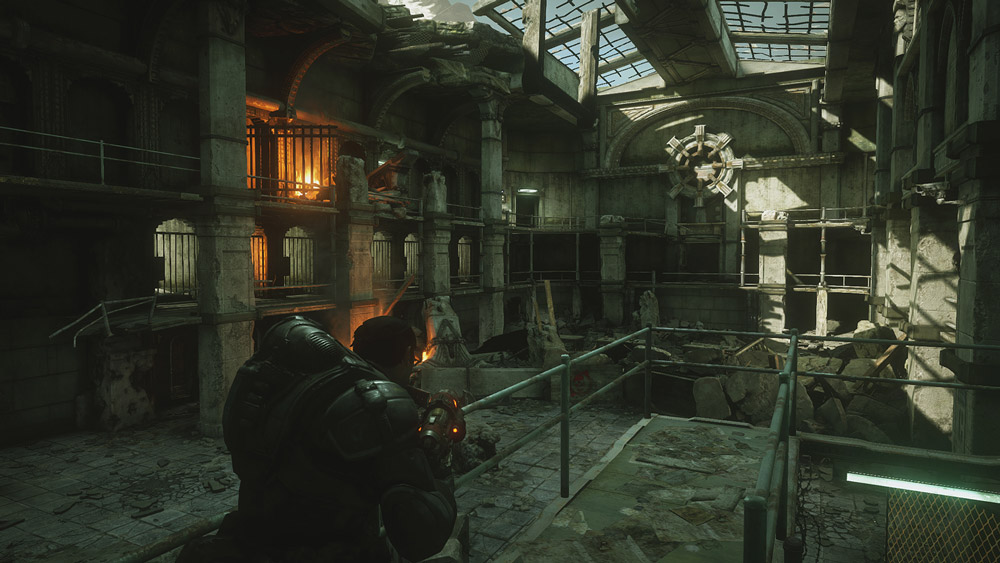TL;DR
Microsoft's Gears of War: Ultimate Edition revives the iconic cover-shooter with stunning 1080p visuals and improved audio. It’s a faithful remake that adds some bonus content for fans, but unfortunately, it doesn't fix the clunky controls or generic story that held the original back. While the updated graphics are impressive, especially in outdoor environments, the aging mechanics and inconsistent AI might be a tough pill to swallow for newcomers. Is it worth a revisit? Dive into our full review to find out.
Coinciding with the impending release of Gears of War 4, Microsoft has released a remastered version of the original Gears of War. The central question is whether enhanced visuals and updated features can overcome the aging mechanics of the title.
In 2006, Gears of War achieved phenomenal success. This Xbox 360 exclusive is often credited with popularizing and solidifying the cover-shooter genre. Its graphics, visceral combat (featuring chainsaw bayonets), imposing enemy designs, high-octane action, and demanding gameplay became focal points of discussion. Over the past decade, the cover-shooter genre has seen further refinement, notably by Naughty Dog, a Sony exclusive studio, through titles such as the Uncharted series and The Last of Us. Gears of War remains a noteworthy entry in the genre, and the Gears of War – Ultimate Edition presents the game with updated visuals. However, pre-existing flaws have not improved and, in some instances, have become more apparent.
Gears of War is set in a dystopian future where Earth is under siege by a hostile alien force known as The Locust. Players assume the role of Marcus Fenix, a disgraced soldier seeking redemption, and, alongside AI-controlled squadmates, must liberate Earth. Gameplay revolves around advancing through environments, utilizing cover, engaging enemies in combat, and repeating this cycle across various locales.
Gears of War benefits from its distinctive visual style and presentation. The cutscenes and in-game environments possess a cinematic quality, accentuated by the scale of enemies and the variety of settings. The outdoor environments are particularly visually impressive. Certain versions of the Ultimate Edition also include Gears of War 1, 2 and 3 (Xbox 360 versions playable on Xbox One) and 90 minutes of campaign content, previously exclusive to the PC version. Coupled with updated 1080p graphics and a reasonably stable frame rate, The Coalition’s remake for Microsoft represents a successful addition to their catalog (though comprehensive collections such as Halo: Master Chief Collection and Rare Replay are still missed). The audio design is notably strong, with effective use of surround sound to provide positional awareness of enemies and a robust bass response that enhances the impact of gunfire, explosions, and Locust vocalizations.
However, the original’s control issues persist. The somewhat clunky and imprecise movement of characters remains a drawback. While Fenix can sprint by holding the A button, his movement can feel unwieldy, potentially impacting performance during intense combat scenarios. Furthermore, the narrative and characters, which were not particularly compelling upon the game’s initial release, remain unremarkable. While Gears of War boasts stylistic flair, it lacks originality in its narrative. The premise of an alien invasion is a well-trodden trope, and the alien designs are relatively generic. The dialogue and overarching plot are formulaic, and the characters lack significant depth. Marcus Fenix, the player character, comes across as a stereotypical caricature. The characters gradually become more relatable with extended playtime, but initially, emotional investment is limited, making it difficult to feel genuine empathy when a squadmate meets a brutal end.
The AI of squadmates was a key point of discussion upon the original’s release. As a leader, the player can issue commands such as attack, regroup, and retreat. However, the AI can be inconsistent, with squadmates occasionally positioning themselves directly in the line of fire, providing cover for enemies while simultaneously exposing themselves to damage. Furthermore, close-quarters combat can be problematic, leading to frustrating deaths due to difficulties in quickly targeting and eliminating nearby enemies. Combined with the fixed checkpoint system, these minor issues detract from the overall experience.
For dedicated fans of Gears of War seeking to revisit the franchise before the release of the fourth installment, the Ultimate Edition offers a streamlined and complete experience. It negates the need to retain the original Xbox 360 version. However, for newcomers or those who were not captivated by the original, the experience may be mixed. The remake exhibits technical proficiency and strives to deliver engaging gameplay, with varying degrees of success. While Gears of War possesses merit and improves as the player progresses, the effects of time are still evident.




